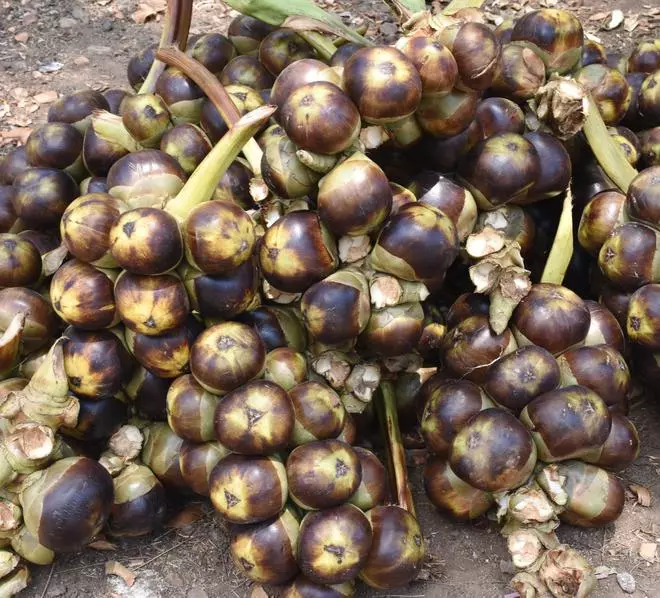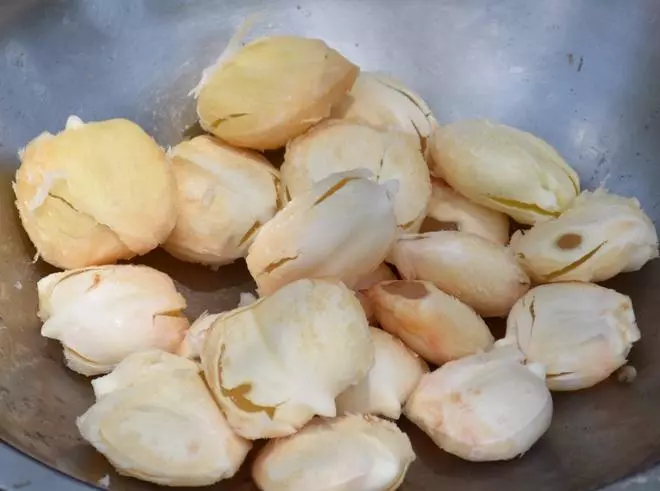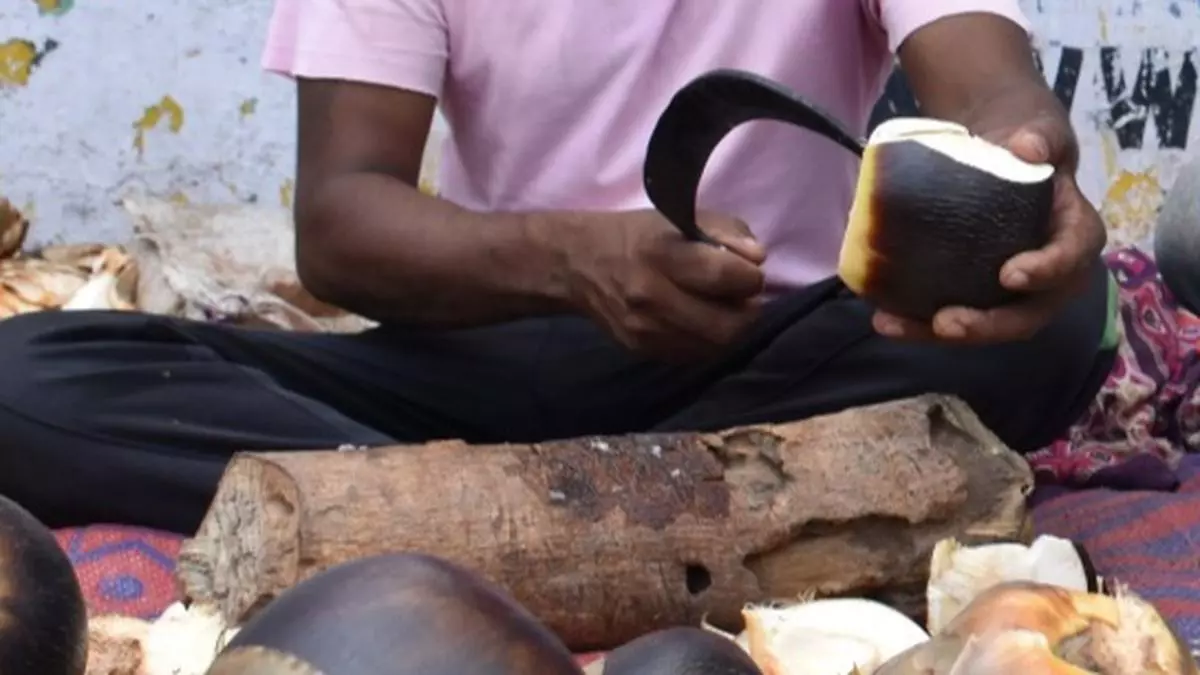Liquor ban casts a shadow on Gujarat’s ‘ice apple’
In the Narmada district of Gujarat, Hitendra Vasava is making the most of summer, quite literally.
A resident of Ranipara village in Nandod taluka, Vasava makes $1,000 a day by selling “taad fali” – a seasonal palm fruit also known as “nungu” or “ice apple” to visitors along Kivadia’s famous Statue of Unity Road. The refreshing, jelly-like and highly nutritious Tad Valley is a treat for travelers and the money king of tribes during the summer.
For years, palm trees—mostly unclaimed and unregulated—have been a source of temporary but promising seasonal work for the tribes in this region.
Tad trees are mostly found in forested areas or along the boundaries of farmland in South Gujarat region. The tribes know its economic importance so they preserve it. During the summer, a large number of tribes engage in this economic activity and make good profits,” said Arvind Machar, deputy director of the State Information Department in Narmada district.
It takes about 25 years for a palm tree to bear fruit. But once it starts yielding, it can generate economic benefits of anywhere from $5,000 to $10,000 per tree during the two summer months, locals have claimed. Taad fali is sold by weight at 100 rupees per kilogram or 8-10 rupees per piece.
No growth of the “tall tree”
Unlike Tamil Nadu, which boasts the Palmera Palm as its official tree, in Gujarat, experts find this tall tree an orphan. It is not an agricultural or horticultural plant and is not considered in social forestry. Hence, there is no state support for agriculture.
Tamil Nadu, for example, has a special state scheme for Palmyra palm plantation.

NN Patel, Deputy Director of Horticulture, Valsad said: “There is no specific scheme for this farm as it does not fall under gardening specialization. However, there are some local cooperative societies that coordinate the production and sale of Taad Gur and Nira (non-fermented natural drinks). “
issues
Although coconut and date palm cultivation in Gujarat has been successful in Saurashtra and Kutch respectively, the cultivation of tad has both practical and legal issues.
The legal problem is that the policy of banning liquor in Gujarat does not allow to stimulate the cultivation of a plant that can be used in the manufacture of liquor.

“The development of Palmyra palm plantation is discouraged due to the restrictive ban law in the state,” said a senior Gujarat government official. business line. The perishable naira turns color and ferments as the day progresses. Eventually, it turns into Tadi or toddy (palm wine), which is banned in Gujarat.
Also read: Gujarat announces financial assistance to potato and onion growers
Because of the ban, proposals to stimulate tad transplantation are usually rejected. There are benefits to palm trees but there is also a negative effect. If Tad Valley can be considered the only producer, then there is economic potential for tribal farmers to make good from it,” said Ike Garcia, District Agriculture Director from Valsad.
However, Khadi and Village Industries Commission (KVIC) is said to provide marketing support for palm-related products, such as taad gur and nira, under strict regulations.
The other issue is the lack of a “package of practices”. unlike mangoOr Sapota or Banana, Taad’s farm has no “package of practices” – a standardized, scientific farming process aimed at higher production such as plant/seed selection, sowing, maintenance, and harvesting.
Gleam of hope?
Considering the economic and livelihood potential of the tribal areas, palm products such as Taad Fali can be provided with marketing support through the organized framework of self-help groups at the village level. “Such models can give a professional touch to the retail business and make it more organized and sustainable for the tribes,” Machar said.
